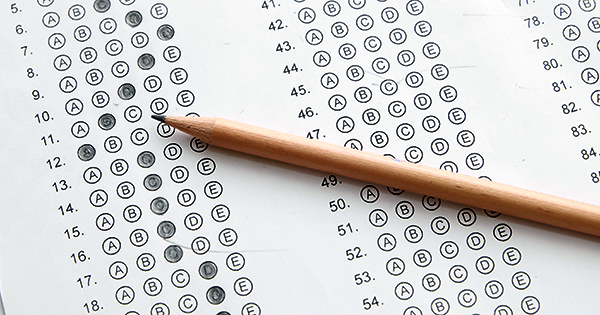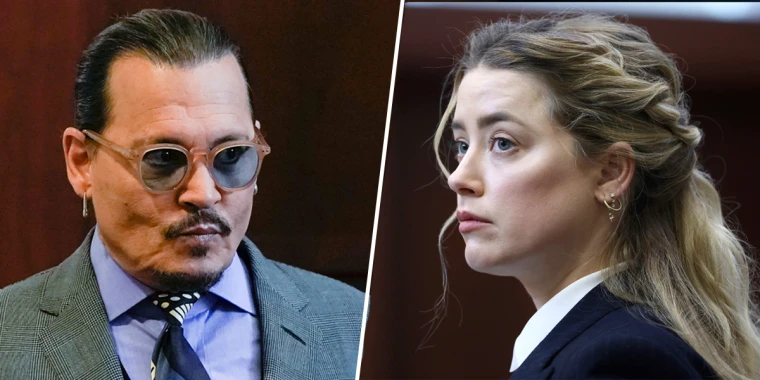Amber Heard v. Johnny Depp
May 27, 2022
Johnny Depp v. Amber Heard. It’s arguably one of the most talked-about and publicized court cases in the media since the OJ Simpson trial. Except for this time the defendant isn’t on the stand for murder, they are counter suing in a civil suit. Johnny Depp launched a defamation suit against ex-wife Amber Heard for $50 million following a Washington Post op-ed that Heard wrote detailing her experiences with domestic abuse. She identified herself in the piece as “a public figure representing domestic abuse.” Defamation occurs when false statements are made about a person that can then cause harm to their reputation and negatively impact their economical status as well as their social standing. A defamation suit allows the person allegedly being “defamed” to sue for compensation for the damages they have endured. Heard is countersuing in this defamation suit for $100 million. Depp had previously sued a British newspaper for libel in 2018 after an article was written calling him a “wife-beater”. He lost this case after the judge concluded that out of the 14 incidents of alleged abuse 12 of them had occurred, thus making the papers’ statements “substantially true”. All of this is to say that though much of the media focus is on the allegations of abuse in their relationship, no one is being prosecuted for domestic abuse. However, the polarization that the case has caused leaves many people wishing it was over abuse, and most would find Depp innocent of all charges. But why is this? Why, unanimously, have so many people concluded that Amber Heard is a manipulative abuser?
We must first start with the accessibility that having a public trial creates. You can tune in every day to hear the latest court proceedings and come to your own conclusion about who is guilty and who is not (though again, Heard is on trial for defamation, not domestic abuse.) Yet this trial has been going for a lot longer than it has been a media sensation. As of the time I write this, May. 23, the trial has been going for 857 days. Consequently, it is difficult to conclude whether all of the #JUSTICEFORJOHNNYDEPP people have managed to comb through every single piece of evidence mentioned so far in the trial. Regardless, we must return to the original question of why the media has picked up on the trial now and why it has taken such a harsh stance against Heard. As proposed by many others, when considering the #MeToo movement it makes perfect sense why this trial is playing out in the public opinion as it is. While neither are being tried for domestic abuse, it certainly plays a tremendous role in how the case is being handled both in and outside the courtroom. The allegations of abuse are being used in extraordinarily different ways in Heard versus Depp’s cases. Depp has been hailed as a symbol for men who are victims of domestic abuse, showing that it is ok to come forward with your stories because people will believe you. While Heard is mercilessly slandered by commentators and companies alike for her behavior, demeanor, clothing, hair, makeup, and more, all of which are meant to prove that she is a conniving liar. Very few people have noted the power imbalance between Amber Heard and Johnny Depp; Heard met Depp at 20 while he was 58 and already a household name in Hollywood. And not nearly enough times have the texts that Depp sent referring to Heard been mentioned (especially when compared to the “poop on the bed” incident). In one text Depp writes, “Hopefully that c*nt’s rotting corpse is decomposing in the f*cking trunk of a honda civic.” My question is why has the general collective mutually agreed that Heard’s defense is incompetent and she is not to be believed even with arguably substantial amounts of evidence pointing to abuse on both sides of the relationship. People must question if as spectators of this trial we should feel comfortable coming to the conclusion that Amber Heard is a liar just because she is not the “perfect” victim of abuse.
People too often forget when looking at this trial from an outsider’s perspective that two seemingly contradictory things can be true at once. Amber Heard can be both a victim and perpetrator of domestic abuse. Johnny Depp can be both a victim and perpetrator of domestic abuse. Neither have to have their experiences discounted and neither should have to face public backlash for coming forward with their stories. The problem therein lies in the difference in how both are being treated. Heard as a “less than desirable” victim creates a perfect opportunity for the zeitgeist to do something it’s been gearing up for, discount the MeToo movement, and devalue the believe-all victim’s sentiment. While the #MeToo movement has many flaws, believing women even when they are not the perfect victim is not one of them. The polarization that this trial has caused is a thinly veiled attempt by many to try and shift the cultural mindset about victims of abuse. And unfortunately, it seems to be working.

























